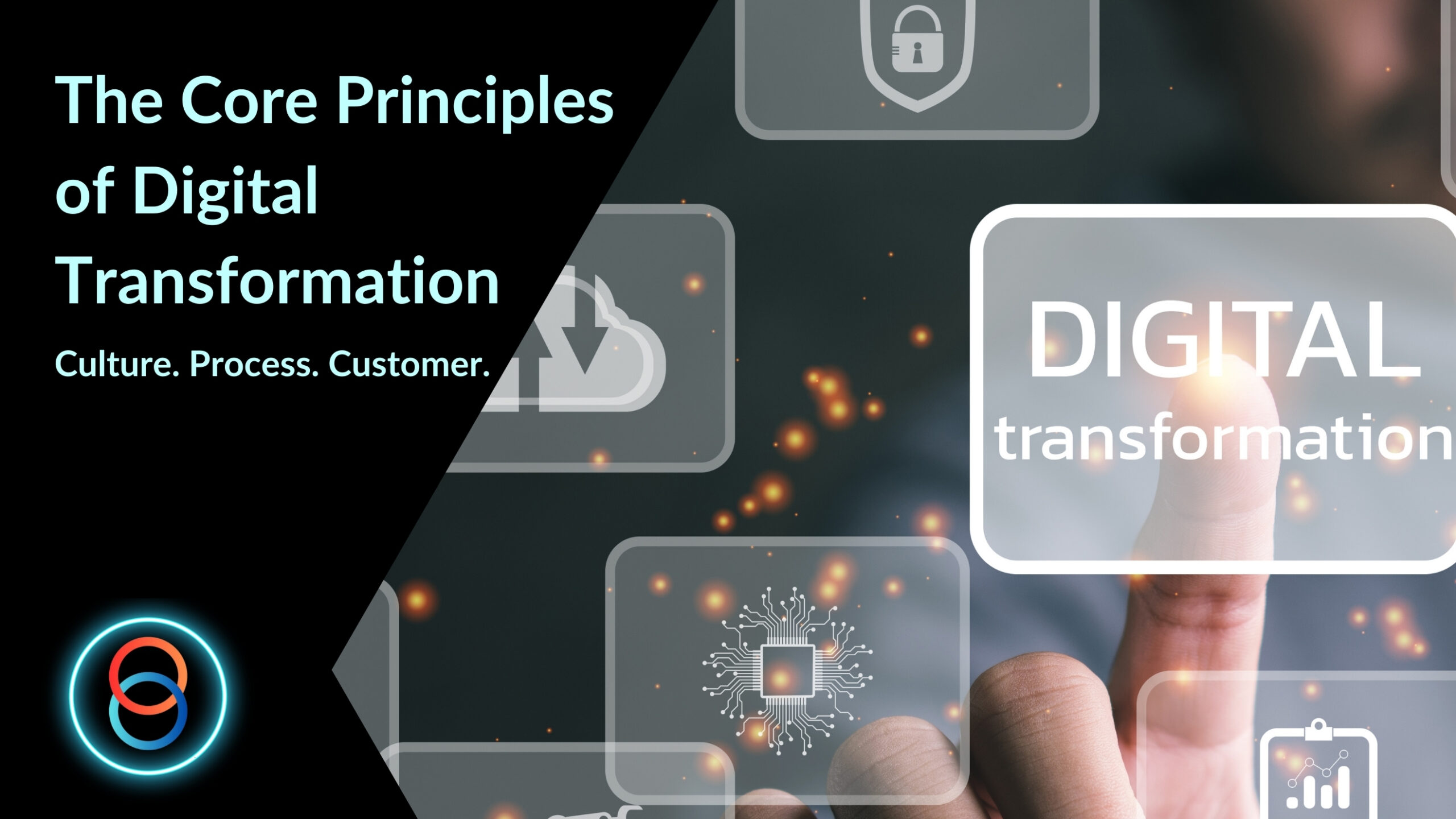The term “digital transformation” is often thrown around, yet its true essence is misunderstood by many, including those I have worked with in the consulting industry. The technical jargon alone and the nauseating array of technology is enough to throw off any executive who has yet to join the bandwagon. While it’s easy to associate digital transformation with adopting cutting-edge technologies or creating flashy apps, it goes far beyond these surface-level changes. At its core, digital transformation is about fundamentally rethinking how an organization operates, delivers value, and adapts to ever-changing customer expectations. This article unpacks the key principles that define true digital transformation: culture, process, and customer-centricity
1. Culture: The Foundation of Transformation
Any organization aiming to undergo digital transformation must start with its culture. Technology alone cannot drive meaningful change without the buy-in and active participation of people at all levels of the organization. A digital-first culture encourages openness to innovation, continuous learning, and collaboration across departments. A new transformation leader joining an organization that is resistant to change, (enter infamous statement: “This is how we’ve always done it.”) need to tackle this area first before introducing any process or technology change.
What does this look like in practice?
- Leadership Commitment: Leaders must champion the transformation, setting a vision that inspires and aligns teams. Leaders must enable themselves and their executives in order to understand what it takes to start and continue a digital transformation journey.
- Agility and Flexibility: Employees must be willing to adapt to new tools, workflows, and mindsets. This requires fostering a culture where experimentation is encouraged and failure is viewed as a learning opportunity.
- Empowerment: Teams need the autonomy to make decisions and leverage digital tools to drive outcomes. Empowering employees creates ownership and accelerates the adoption of transformation initiatives.
Organizations that fail to prioritize culture often struggle with resistance to change, siloed departments, and disengaged employees. True digital transformation begins when culture shifts to embrace the possibilities of technology.
2. Process: Rethinking the Way We Work
While technology enables transformation, it’s the redesign of business processes that drives real impact. Digital transformation involves reimagining workflows and operations to enhance efficiency, reduce costs, and deliver better outcomes. Each organization is unique. There is no transformation strategy or execution roadmap that fits all companies, because the business processes and value generation for each company is different.
Key aspects of process transformation include:
- Streamlining Workflows: Identify bottlenecks and redundancies in existing processes. For instance, replacing manual data entry with automated systems can save time and reduce errors.
- End-to-End Integration: Silos between departments often lead to fragmented operations. Leveraging technologies like enterprise resource planning (ERP) systems ensures seamless data flow across functions, improving collaboration and decision-making.
- Data-Driven Decisions: Digital transformation enables businesses to collect, analyze, and act on real-time data. This allows organizations to respond proactively to market trends and customer needs.
For example, consider how logistics companies have transformed their operations by integrating IoT devices into their supply chains. By using sensors to monitor shipment conditions and GPS for real-time tracking, they’ve optimized routes, reduced costs, and improved customer satisfaction. These changes are not just technological but deeply rooted in process innovation.
3. Customer-Centricity: Putting the Customer First
At its heart, digital transformation is about delivering value to customers. Businesses must place customers at the center of every decision, ensuring their needs and expectations guide the transformation journey. Customers come first, and all good things stem from meeting the customer’s needs.
How does customer-centricity manifest?
- Personalization: Leveraging data and analytics to understand customer preferences and tailor experiences. For example, e-commerce platforms use AI to recommend products based on browsing history and purchase patterns.
- Seamless Experiences: Customers expect interactions with brands to be smooth and intuitive, whether online or offline. Ensuring consistent experiences across all touchpoints—from websites to customer support—is critical.
- Proactive Engagement: Use technology to anticipate customer needs before they arise. For instance, predictive maintenance solutions in the automotive industry notify car owners of potential issues before they become problems.
Organizations that prioritize customer-centricity build stronger relationships, foster loyalty, and differentiate themselves in competitive markets. Ultimately, these efforts lead to increased revenue and long-term growth.
Beyond Buzzwords: Embracing Transformation
Digital transformation is not a one-time project or a trend that businesses can ignore. It is a continuous journey of evolution that demands alignment between technology, culture, process, and customer focus. Companies that embrace these core principles position themselves to thrive in a rapidly changing world.
To move beyond the buzzwords, businesses must start by asking critical questions:
- Are we fostering a culture that embraces change and innovation?
- Have we reimagined our processes to leverage the full potential of technology?
- Are we truly putting our customers at the center of our strategies?
By answering these questions and aligning efforts with the core principles of digital transformation, organizations can unlock new opportunities, drive sustainable growth, and remain resilient in the face of disruption. It’s not just about being digital—it’s about being transformational.





